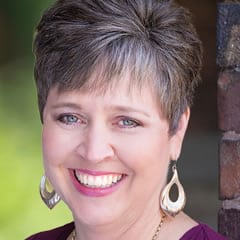Jill Savage is an international speaker and author of 14 parenting books including No More Perfect Moms, No More Perfect Kids and No More Perfect Marriages.
Menu
Menu

Jill Savage is an international speaker and author of 14 parenting books including No More Perfect Moms, No More Perfect Kids and No More Perfect Marriages.
A mother’s love needs to be given unconditionally to establish trust and a firm foundation of emotional intimacy in a child’s life.
Teens need these spiritual insights from their parents, now more than ever.
Nurturing gratitude doesn’t always come easy. It’s an intentional part of parenting, and an important trait every family can cultivate.
Our teens are quickly growing into the adults they will become. Help them respond respectfully, not emotionally.
Most grandparents want to be an asset to their grandchildren — provide a listening ear, welcome heart and safe place for kids to emotionally land. But how does one do this?
Sometimes it feels like there’s not enough of us to go around because parenting is nonstop. Use these strategies to go from restless to resting in God’s peace as a parent.
It’s hard work to rebuild trust and intimacy after the betrayal of infidelity, but when both partners are willing to do the work, it’s worth it.
Enjoying life and laughing together again as a couple is important after experiencing a hard season together. Here’s how to have fun again.
I knew my daughter was struggling emotionally, but I had no idea about the extent of her depression.
Help your teen move from receiving to giving — using these six simple strategies.
Sometimes the best way to celebrate Thanksgiving isn’t the traditional way. Learn how to let go our your holiday expectations
Jill Savage offers encouragement and insight to parents facing the challenges that come with reorienting their lives after their children leave home.
Boot these bad habits for better communication
Teens have one foot in adolescence and the other foot in adulthood. They’re learning to make big decisions on their own, yet still require accountability and a compass that guides them in the right direction.
Because the health of marriage is ultimately determined by individual health, we need to be diligent about emotional, mental, physical and spiritual fitness.
In a message based on her book No More Perfect Moms: Learn to Love Your Real Life, Jill Savage encourages moms to find relief from performance anxiety by allowing themselves, and their loved ones, the freedom to make mistakes.
When we control our tongues, we can build a healthy, nurturing marriage. Exercising self-control in the little things may even help strengthen us to overcome temptation in the bigger things.
Sometimes children feel like projects their parents are trying to finish or problems they’re trying to solve. If your kids feel this way, here’s how you can turn that around.
As you sort through your unmet expectations on Mother’s Day, realize that you may play a part in fueling your disappointments.
Author Jill Savage and educational psychologist Dr. Kathy Koch explain why parents should avoid pushing perfection on their kids, and instead maintain realistic expectations and love them unconditionally. (Part 3 of 3)
Author Jill Savage and educational psychologist Dr. Kathy Koch explain why parents should avoid pushing perfection on their kids, and instead maintain realistic expectations and love them unconditionally. (Part 2 of 3)
Author Jill Savage and educational psychologist Dr. Kathy Koch explain why parents should avoid pushing perfection on their kids, and instead maintain realistic expectations and love them unconditionally. (Part 1 of 3)
Mark and Jill Savage’s commitment to relational growth required them to find creative solutions to their differing sexual needs. And they discovered how to be both parents and lovers.
Perfectionism isn’t healthy for us or our relationships. It feeds discontent. It fosters judgment. So, how do we get out from under the pressure of perfectionism? It all starts with grace.
Author Jill Savage offers some practical ideas for how parents can make their family’s home a safer and healthier place for their children.
We need to take care of ourselves so that we can take care of our family.
Stay-at-home moms create an environment where bonding takes place and children learn to attach to relationships.